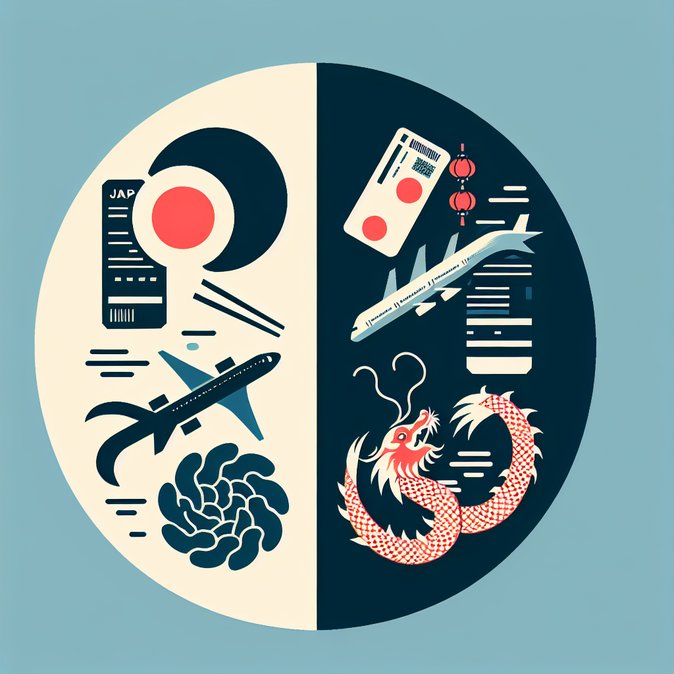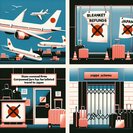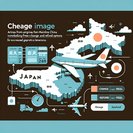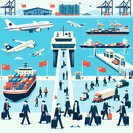
Sino-Japanese tensions spiked this week after new Japanese Prime Minister Sanae Takaichi said a PLA attack on Taiwan could trigger a Japanese military response. In Beijing’s rebuttal on 19 November, the foreign ministry urged Chinese citizens to reconsider travel to Japan, citing “safety risks,” and hinted at a blanket ban on Japanese seafood imports—just months after partially lifting restrictions linked to Fukushima wastewater.
Chinese travel agencies reported mass cancellations within 24 hours, affecting December and Lunar New Year departures. Analysts at Ctrip estimate the clamp-down could erase up to USD 1.8 billion in outbound-tourism spending and derail Japan’s goal of recovering pre-pandemic Chinese visitor numbers by 2026.
![Beijing Issues Travel Warning for Japan as Seafood Ban Looms Amid Diplomatic Spat]()
For global mobility programmes, the advisory complicates East Asia itineraries: Chinese employees travelling on Schengen or U.S. visas often route through Tokyo or Osaka for cost reasons; companies may need to re-book via Seoul or Taipei. Logistics chains reliant on passenger belly cargo—especially high-value electronics—could also feel the pinch if flight loads decline.
Japanese seafood exporters are bracing for impact. Before the 2021 Fukushima dispute, China was the top buyer of scallops and sea cucumbers. Only three of nearly 700 exporters have so far regained Chinese clearance, and the latest rhetoric threatens to choke that pipeline again.
While no formal travel ban is in place, risk teams should monitor embassy advisories and airline refund policies. History suggests that what begins as “guidance” can quickly morph into outright suspensions, as seen during earlier South Korea THAAD-related boycotts.
Chinese travel agencies reported mass cancellations within 24 hours, affecting December and Lunar New Year departures. Analysts at Ctrip estimate the clamp-down could erase up to USD 1.8 billion in outbound-tourism spending and derail Japan’s goal of recovering pre-pandemic Chinese visitor numbers by 2026.

For global mobility programmes, the advisory complicates East Asia itineraries: Chinese employees travelling on Schengen or U.S. visas often route through Tokyo or Osaka for cost reasons; companies may need to re-book via Seoul or Taipei. Logistics chains reliant on passenger belly cargo—especially high-value electronics—could also feel the pinch if flight loads decline.
Japanese seafood exporters are bracing for impact. Before the 2021 Fukushima dispute, China was the top buyer of scallops and sea cucumbers. Only three of nearly 700 exporters have so far regained Chinese clearance, and the latest rhetoric threatens to choke that pipeline again.
While no formal travel ban is in place, risk teams should monitor embassy advisories and airline refund policies. History suggests that what begins as “guidance” can quickly morph into outright suspensions, as seen during earlier South Korea THAAD-related boycotts.











